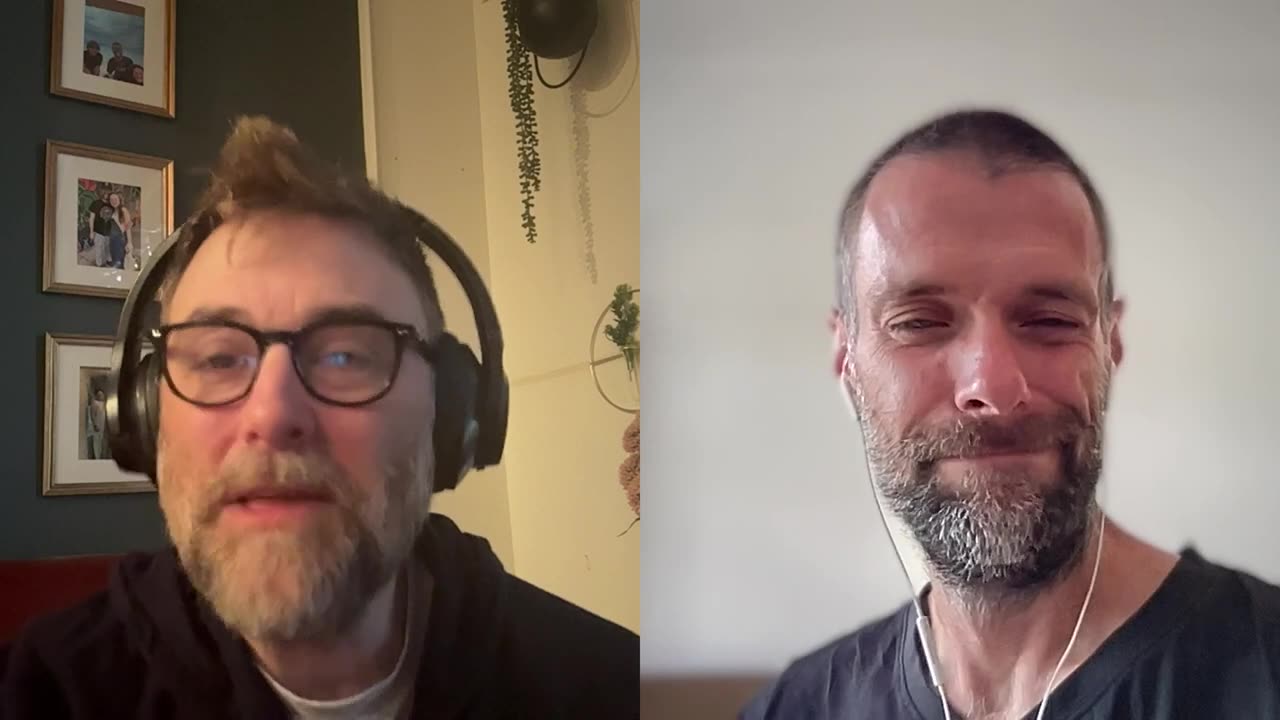Premium Only Content

Flotation Therapy and Circus Arts with Murphy Monroe
(Ai assist:) Murphy Monroe is a Chicago-based circus school director, float center owner, and disability advocate. Murphy shares his profound experiences with flotation therapy, his journey as an autistic individual, and how these elements intertwine with his work running a circus school and theater company. The conversation delves into the therapeutic benefits of float tanks, the concept of shared consciousness, and the intersection of wellness and circus arts. Murphy’s insights offer a unique perspective on mindfulness, neurodivergence, and creating inclusive spaces.
Introduction to Murphy Monroe (00:00 - 02:44)
Murphy introduces himself as a father, husband, and autistic individual living in Evanston, Illinois.
He runs a circus school and theater company in Chicago
His life has been deeply transformed by flotation therapy, which he describes as a powerful tool for wellness and self-discovery.
Discovery of Flotation Therapy (02:44 - 07:15)
Murphy first experienced flotation therapy in the early 1990s at one of Chicago’s original float centers.
As an autistic child, he was drawn to dark, quiet spaces (e.g., hiding in closets or between mattresses), making the float tank a natural fit.
He rediscovered floating about 10-12 years ago when a new float center opened in his hometown, finding it a “shortcut to meditation” that enhanced his mindfulness practice.
What is Flotation Therapy? (07:15 - 11:16)
Murphy describes the float tank experience: lying in 10 inches of magnesium sulfate-saturated water (like the Dead Sea) heated to skin temperature (94.5–95°F).
The air and water are kept at the same temperature, creating a gravity-free, sensory-deprived environment.
In complete darkness, external stimuli vanish, allowing the brain to “turn off” and access unique states of relaxation and consciousness.
Benefits include muscle recovery (popular among athletes), reduced inflammation, and a space for profound introspection or liminal dreaming.
Profound Experiences in the Float Tank (11:16 - 14:09)
As an autistic individual with poor interoception (awareness of bodily sensations), Murphy found the float tank helped him connect with his body, feeling his heartbeat and diaphragm for the first time.
The tank deepened his meditation practice, leading him to believe in a shared consciousness—a collective energy accessible through mindfulness.
Floating became a gateway to “active listening” for this shared consciousness, fostering a sense of connection with others.
Consciousness and Sensitivity (14:09 - 16:54)
Murphy defines consciousness as a shared, all-encompassing energy that holds all knowledge and experience, akin to a divine force. He believes humans access it through their brains and that love and openness are pathways to deeper connection.
Murphy and Josh discuss embodiment practices (e.g., Tai Chi, yoga, massage) as ways to bridge the mind-body gap, particularly for neurodivergent individuals.
Exploring Sensory Deprivation and Protection (16:54 - 21:24)
Josh inquires about soundproof chambers and Faraday cages, wondering if they could enhance meditation by blocking electronic transmissions.
Murphy expresses interest in combining float tanks with Faraday cages to shield against electromagnetic interference, believing it could deepen the meditative experience.
He shares his curiosity about dark retreats, having spoken with others who had both challenging and profound experiences in complete darkness.
Running a Float Center (21:24 - 27:46)
During COVID, Murphy purchased a float tank for home use but later acquired a Chicago float center when its owner struggled.
He sees running the center as a way to provide a healing space for the community, despite the business’s challenges due to its niche nature.
Advice for aspiring float center owners: Be passionate about floating, connect with the supportive float community, and consider adding a single tank to existing wellness businesses (e.g., spas) to attract new clients.
Circus Arts and Wellness (27:46 - 34:19)
Murphy’s circus school teaches both children and professional adults, producing acts that tour nationally.
Circus performers, as high-level athletes, benefit from float tanks for muscle recovery and fatigue management, complementing the high-energy nature of their work.
The contrast between the chaos of circus and the calm of floating provides Murphy with balance and enhances his wellness advocacy.
Closing Thoughts and Advocacy (34:19 - 36:48)
Murphy encourages listeners to trust their inner truth, especially neurodivergent individuals who may feel at odds with societal norms.
He advocates for creating inclusive workplaces and public spaces that support neurodivergent employees and customers.
“Floating is a shortcut to meditation… it creates circumstances upon which you’re oftentimes more likely to find a space of peace.” – Murphy Monroe
-
 1:05:28
1:05:28
Man in America
10 hours agoLIVE: Digital ID & the DEATH of Freedom—An URGENT Warning
45.2K52 -
 40:24
40:24
The Connect: With Johnny Mitchell
1 day ago $4.39 earnedInside The WORST Drug-Infested Slums Of Medellin, Colombia
15.1K6 -
 1:43:56
1:43:56
Tundra Tactical
7 hours ago $16.48 earned🛑LIVE NOW!! FBI Gets Caught LYING About Good Guys With Guns For 10 YEARS!!!!
37.9K5 -
 2:12:01
2:12:01
BlackDiamondGunsandGear
2 days agoAFTER HOURS ARMORY / Antifa / Lies/ Prison time
21.3K1 -
 2:12:00
2:12:00
DLDAfterDark
6 hours ago $4.99 earnedThe After Hours Armory! Tonight is The Chat's Chat! God, Guns, and Gear!
29.7K3 -
 3:32:18
3:32:18
Mally_Mouse
9 hours ago🌶️ 🥵Spicy BITE Saturday!! 🥵🌶️- Let's Play: Phasmophobia
43.3K5 -
 1:13:19
1:13:19
iCkEdMeL
5 hours ago $15.31 earnedChaos Explodes in Chicago & Portland | Feds Clash with Protesters!
39.4K11 -
 21:54
21:54
Exploring With Nug
1 day ago $9.45 earnedScuba Diving Missing Person Search Leads to Discovery of Classic Cars!
57.9K11 -
 8:06:32
8:06:32
Phyxicx
10 hours agoStar Wars: Movie Battles II Community Event hosted by ReaperAF95 - 10/4/2025
25.8K -
 1:19:51
1:19:51
World2Briggs
8 hours ago $2.54 earnedThe US This Week
32.6K5
